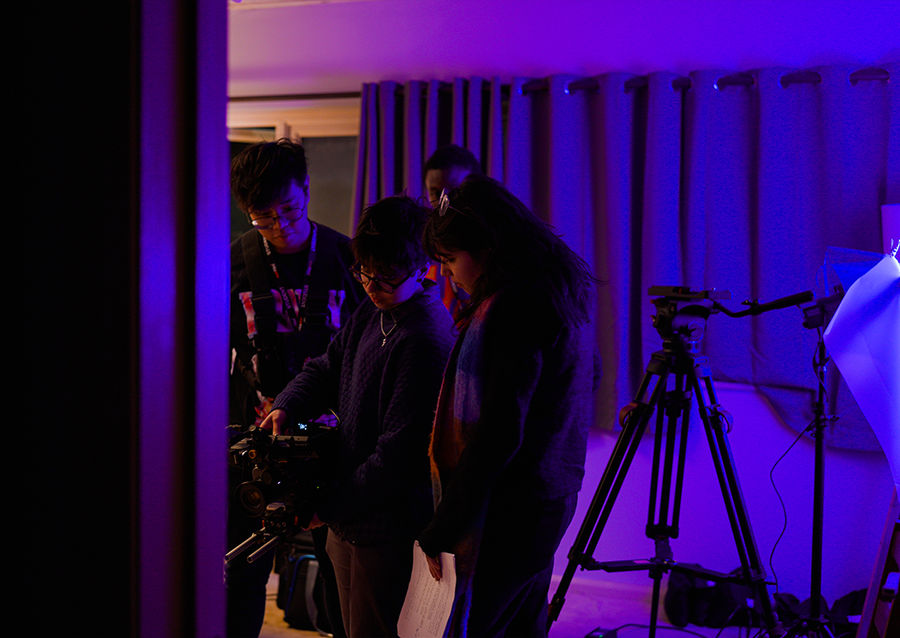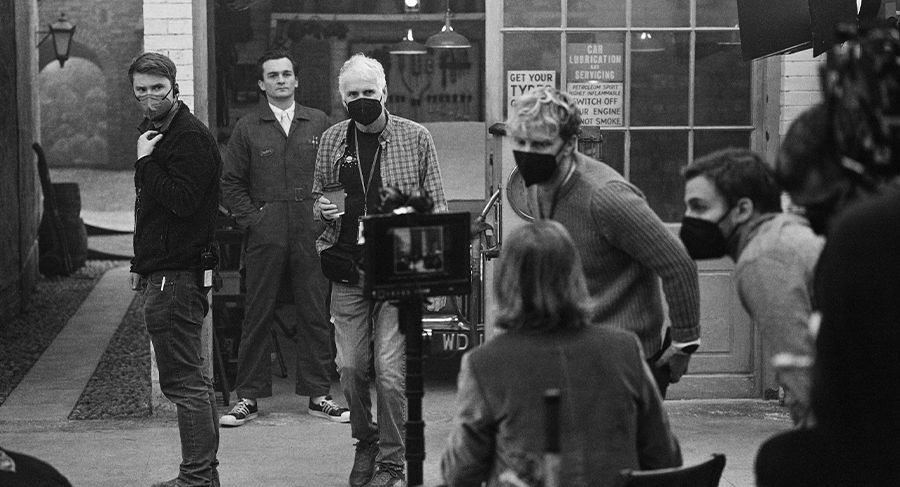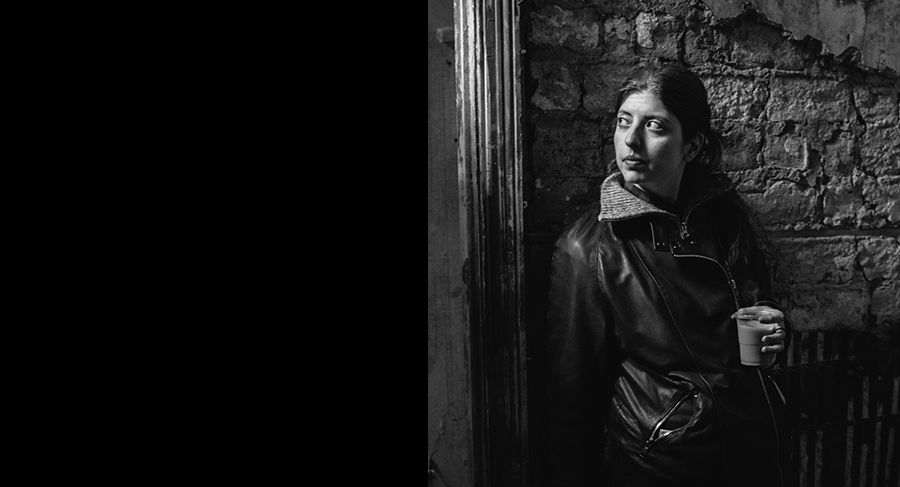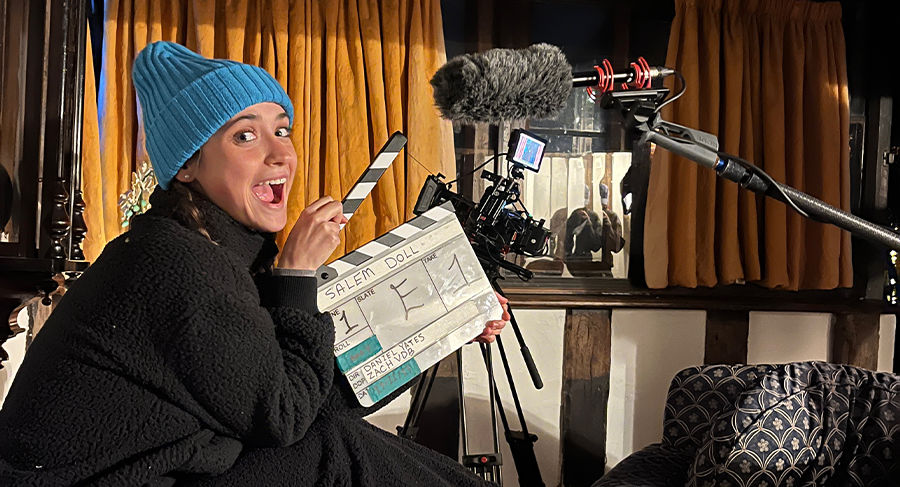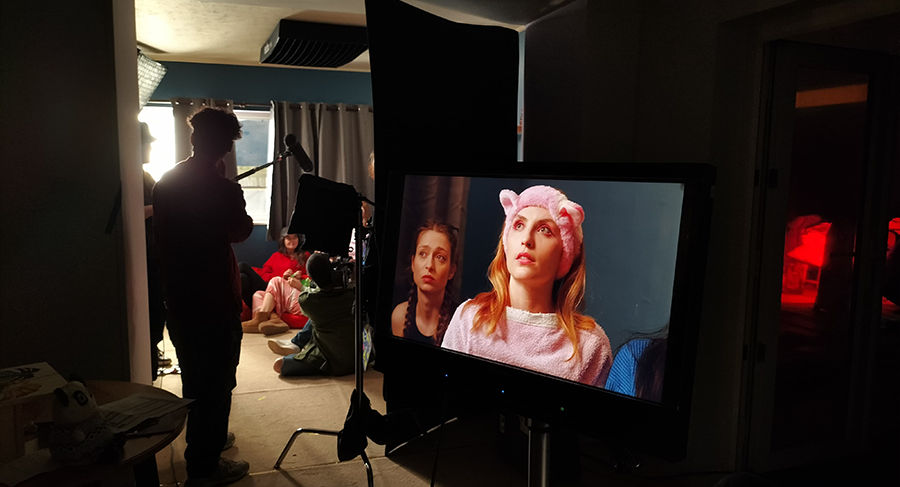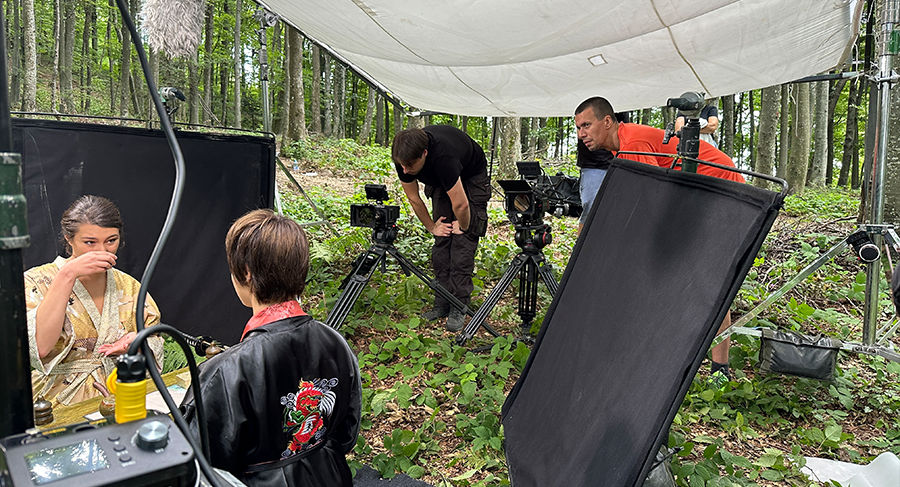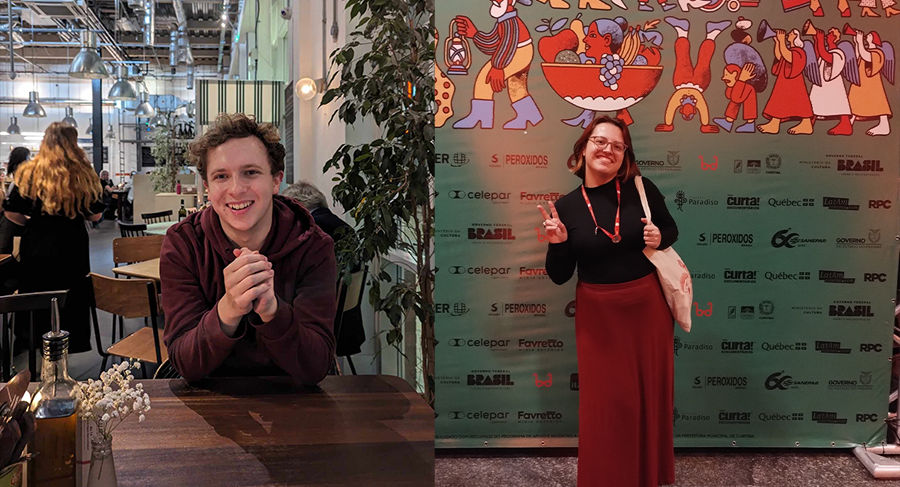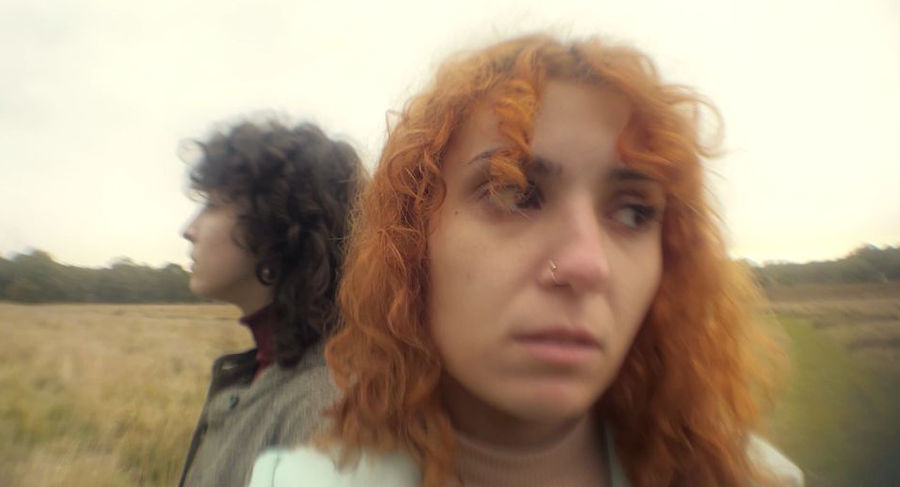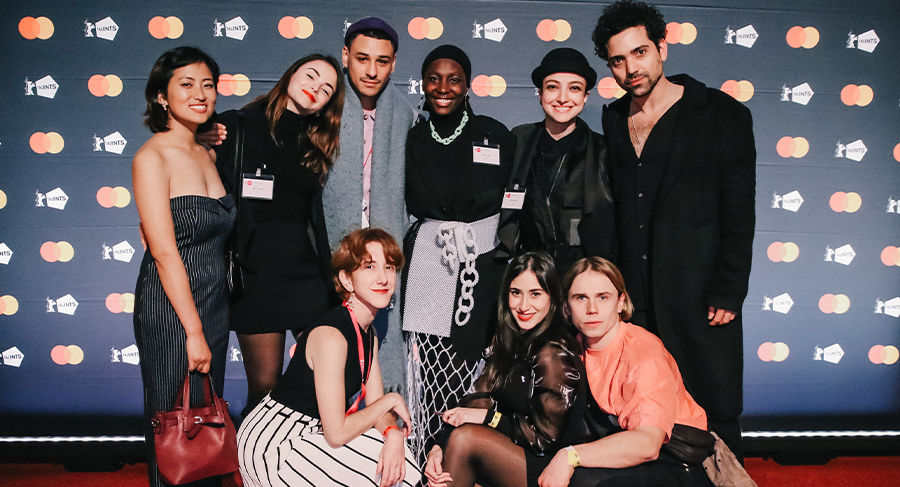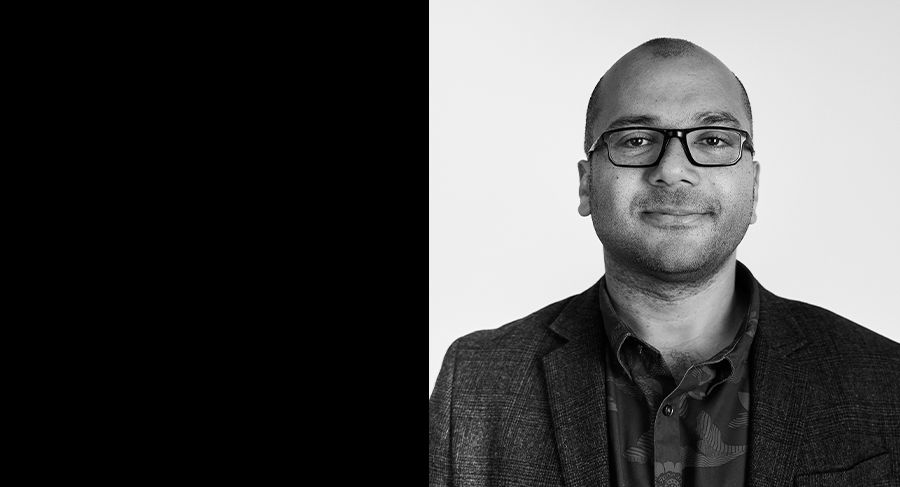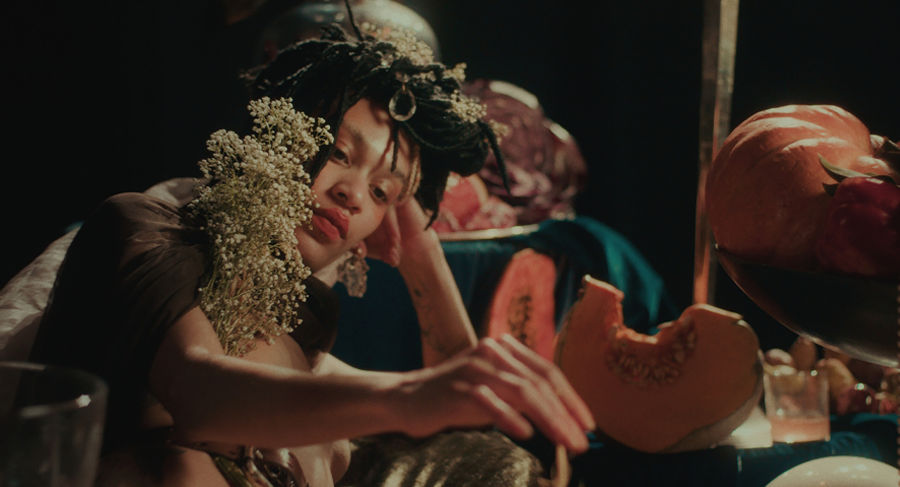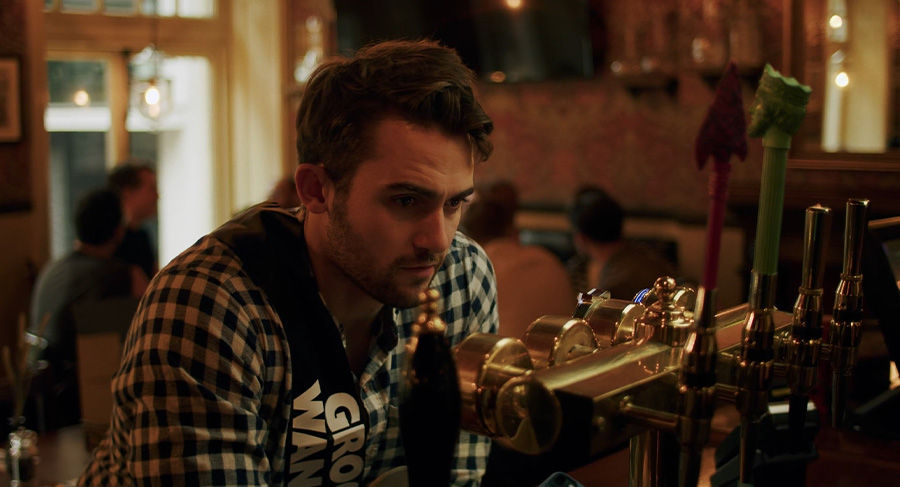After the Rain on Thursday with Jenn Webb (MA Film & TV Production)
By Elise Czyzowska
04 April 2024
As the springtime approaches, so does one of our favourite times of the year… Graduation Project season!
Our MA students across London, Berlin, and Leeds, are all gearing up for the production and post production on their final projects – and that includes MA Film & Television Production student, Jenn Webb.
Their film, After the Rain on Thursday, is currently in post production, and in today’s blog, we caught up with Jenn to go behind-the-scenes of the short film, as well as to find out more about their time on this London-only postgraduate degree!
Can you tell us a little about After the Rain on Thursday?
It’s an LGBT sci-fi drama set in 1969 about two flatmates. One of them discovers the other is an alien, causing a divide in their friendship.
It’s a bit of a mix of something old and something new – the time period, and the LGBT elements, come from a script I wrote in high school with my best friend, and aspects of the sci-fi bit come from something I wrote on the course.
I wanted to tell a story that was fun, but also important, so I fused the two ideas together, and After the Rain on Thursday was the result!
As Cinematographer, how did you come up with the visual style for the film?
The style was always going to be very vintage-inspired and saturated. I wanted the grainy, soft look of film (with good separation), with the dramatic lighting and colourfulness of sci-fi.
I looked a lot at Poor Things and Blade Runner 2049. One morning I woke up, and the sunrise was beautifully illuminating the edges of my door, so I used that as a reference, too.
Then, I chose to implement Roger Deakins’ preference for primes to lock in shots. And there’s also a bit of a ‘teen’ look with some of the shots – it’s a very organised hodgepodge!

Having completed production, how did you achieve this style? Were there any specific techniques or practical tips?
I feel that a lot of this film is stylised by the lenses we used, and our lighting choices. For most of the shoot, we used primes, and I think some of our best shots were handheld. We got that soft look that we were going for, and had a lot of fun with the haze to create these striking beams of light.
My advice on this would be to know what you want. Learn from people who know more than you, and work closely with your crew – create a team that you believe in. An Open Day director I worked with told me to move with my actors: to feel what’s right with the work they’re doing.
You don’t need a big, expensive camera to make something that matters. It’s all about what you do with the camera.
Your degree is unique amongst our MAs, offering a multidisciplinary approach. From your time on the course, do you have a favourite craft area?
I’ve always liked cameras, and this degree has confirmed that this is what I want to specialise in. But I’ve also discovered a love of writing, which can pair well with cinematography.
It’s an interesting combination, as most writers also want to direct – and this course has taught me that I definitely don’t mind directing, either. I’m glad I got to try it all, but cinematography is definitely where the magic comes alive for me.

Earlier this year, you also filmed on the Garden Studios Virtual Production (VP) stage. What was this experience like?
It was unlike anything I’d done before. It was a bit of a surprise to have my pitch chosen and appointed to direct (for the first time!) – all with a VP stage and an Arri Alexa!
I’ll never forget it. It opens up a whole new world of opportunities and stories to tell. You can just blink, and suddenly, you’re in a jungle with a black panther, or flying through the sky like Superman… though it’s obviously very technical, too.
How do you think working on Virtual Production has strengthened your traditional filmmaking skillset?
It was definitely a challenge. It made me develop an appreciation for the complexities of directing, especially within VP. You have to coordinate with the VP team, the actor(s), and the cinematographer.
It’s a whole new kind of synchronised dance with unique challenges, such as keeping the actor far enough from the screen that you don’t see the pixelation.
Luckily, I had just written a case study on Good Omens 2, where they used a VP stage. I’d also done a bit of reading on the topic in Gavin Finney’s British Cinematography article. Plus, the Garden Studios staff were very helpful.

And finally, how do you think your Final Project reflects you as a filmmaker?
I hope that After the Rain on Thursday reflects that you can do anything for your Graduation Project. I wanted to do sci-fi because I love sci-fi – shows like Doctor Who are what inspired me to be a filmmaker!
I also wanted to write about being LGBT, because that experience matters to me. And I set it in the 1960s because we, as humans, tend to repeat ourselves.
I suppose, as a ‘calling card’, I would like to show my approach to doing something different. I always want to be doing something new and exciting – after all, filmmaking really keeps me on my toes.
A final note from Jenn Webb…
I want to thank everyone on the team, both cast and crew. I was very lucky to have had such an amazing team, and I could not have done this project without them and their belief in me.
We’re still taking and welcoming contributions via ko-fi.com/atrotfilm – and we’re incredibly grateful for the support we’ve gotten so far!
- Jenn Webb studies MA Film & Television Production at MetFilm School London.
- Explore After the Rain on Thursday via the Ko-Fi page, or on the official Instagram page.
Full Credits
- Co-Director, Cinematographer & Writer: Jenn Webb
- Co-Director & Producer: Marla Lopez
- Sound: Joe Brooks
- Co-Editor: Lars Wilke
- BTS Editor: Tom Porter-Brown
- Production Designer: Holly Hayward
- 1st Assistant Director: Nana Agyeman-Bediako
- 2nd Assistant Director: Emilia Chester
- 1st Aid: Mahesh Varma
- 1st Assistant Camera & Co-Editor: Jojo Eifler
- 2nd Assistant Camera & Spark: Natasarut ‘Don’ Sirivech
- Gaffer: Meg Thundercliffe
- Camera Consultant: Pip Dusadeevijai
- Boom Operator: Kenya Mask
- Script Supervisor & BTS Camera: Sarah Intrieri
- Art Assistant: Ruiyue ‘Dorothea’ Zheng
- Historical Consultant: Jasper Graham
- Cast: Caspain Faye, Inês Drumond & Gabriel Edge
